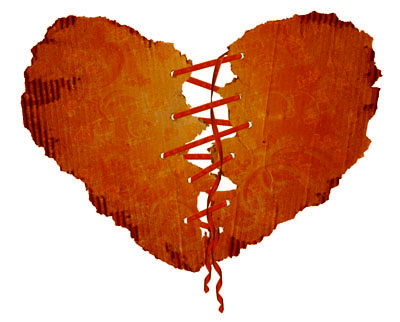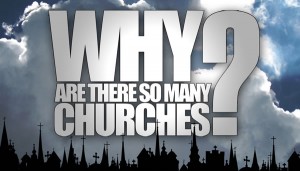In the last three chapters or so of his work, Hosea summarizes much of the case he has brought against the nation of Israel. As we saw last week, this summary began by reminding them of who they are, whom they serve, and what the Lord had done for them (11:12-12:14). In chapter 13, he now continues his summary by recounting the charges on which Israel is being indicted. The chapter therefore contains many parallels to the first four chapters of the book, though stated with even greater force and brevity. In every case, though, Israel’s sin is depicted as an ungrateful abuse of the good things God had given them.
Israel’s primary offense is therefore stated again: they had traded their relationship with God for a hunk of metal. “When Ephraim spoke, there was trembling; he was exalted in Israel, but he incurred guilt through Baal and died. And now they sin more and more, and make for themselves metal images, idols skillfully made of their silver, all of them the work of craftsmen” (Hos 13:1-2 ESV)! During the height of Israel’s monarchy, they were truly a force to be reckoned with. Though never reaching the same proportions of the great empires of their day, Solomon “ruled over all the kings from the Euphrates to the land of the Philistines and to the border of Egypt. And the king made silver as common in Jerusalem as stone, and he made cedar as plentiful as the sycamore of the Shephelah” (2Ch 9:26-27; see too Isa 7:2). Yet from this very silver and these very trees, Israel sinned against the God who had given them both (4:12-13)!
The Lord would therefore punish his people for ungratefully turning their blessings into abominations, as he said before: “The more they increased, the more they sinned against me; I will change their glory into shame” (4:7). When we use our fortunes for faithlessness, God has every right and all the power to remove them—and he will. Not only that, but he will remove from us even the most basic elements of living: grain and water. “Therefore they shall be like the morning mist or like the dew that goes early away, like the chaff that swirls from the threshing floor or like smoke from a window” (13:3). Like Israel’s faithfulness, her sinfulness would not last long (6:4); it would be carried away on the winds of judgment, fanning the flames of God’s wrath.
The once luscious land would therefore be turned into a wilderness, even worse than the Sinai. “But I am the LORD your God from the land of Egypt; you know no God but me, and besides me there is no savior. It was I who knew you in the wilderness, in the land of drought; but when they had grazed, they became full, they were filled, and their heart was lifted up; therefore they forgot me” (Hos 13:4-6). Jehovah was their only God (12:9), he was their only Deliverer (11:1; 12:13), the one who dwelt among them (Exo 40:34-38), the one who provided them water, bread and meat (Exo 15-17; Num 11), and brought them into the Promised Land (Jos 21:43-45)—but the name of the Lord had been forgotten (Hos 2:13). So now his judgment would rise as “the east wind, the wind of the LORD . . . rising from the wilderness, and his fountain shall dry up; his spring shall be parched; it shall strip his treasury of every precious thing” (13:15; 12:1; Jer 18:15-17).
And so the “land flowing with milk and honey” would become a fruitless forest filled with wild beasts (Exo 3:8; Hos 2:3, 9, 12). But the King of the beasts would not go hungry. Since God could not be their protector, they would become his prey: “So I am to them like a lion; like a leopard I will lurk beside the way. I will fall upon them like a bear robbed of her cubs; I will tear open their breast, and there I will devour them like a lion, as a wild beast would rip them open” (Hos 13:7-8; see 5:14). For her unfaithfulness, Israel would be ripped open and feasted upon by the winged lion of Babylon, the devouring Persian bear, and the four-headed leopard of Greece (Dan 7:2-6, 17; 2:37-39); all under the command of the Lord of heaven and earth.
And since Israel had denied the Lord as their King, he would remove even their earthly rulers. “He destroys you, O Israel, for you are against me, against your helper. Where now is your king, to save you in all your cities? Where are all your rulers—those of whom you said, ‘Give me a king and princes’? I gave you a king in my anger, and I took him away in my wrath” (Hos 13:9-11). It was Israel who had requested a king in the first place, and though Yahweh allowed Samuel to accommodate their request, God pointed out what this meant for the people spiritually: “Obey the voice of the people in all that they say to you, for they have not rejected you, but they have rejected me from being king over them . . . forsaking me and serving other gods, so they are also doing to you. Now then, obey their voice; only you shall solemnly warn them and show them the ways of the king who shall reign over them” (1Sa 8:7-9).
Israel’s dynastic history attests to this same unfortunate trend. Time and time again (through ten dynasties!) Jehovah would raise up a leader to judge Israel’s king, take the throne, and restore the nation. But greed, lust, and politics would interfere and turn away the hearts of even the deliverers, so that the Lord could say in truth, “They made kings, but not through me. They set up princes, but I knew it not” (Hos 8:4). So when the kings were gone, the people knew they were done for; they had traded the Hope of heaven for the pleasures of earth, and would now lose both: “We have no king, for we fear not the LORD, and a king—what could he do for us” (10:3)?
So, having chosen the paths of death, they would now suffer the consequences of a life without God, that is, until that too was taken away. “The iniquity of Ephraim is bound up; his sin is kept in store. The pangs of childbirth come for him, but he is an unwise son, for at the right time he does not present himself at the opening of the womb” (13:12-13). And not even their children would escape the carnage: “they shall fall by the sword; their little ones shall be dashed in pieces, and their pregnant women ripped open” (13:16). Again, the prophet’s imagery is both tragic and graphic. Israel’s names are bound up as if in a scroll of sins, a record of wrongdoing; Hosea lists the stillborn and the slaughtered together, neither of whom could be delivered (Isa 8:16; Deu 32:34-35). Israel had born illegitimate children, and since they were Not His People, they would receive No Mercy (1:6-9).
But there would be no mother to mourn the loss of the child. The Lord thus asks rhetorically, “Shall I ransom them from the power of Sheol? Shall I redeem them from Death?” (Hos 13:14). He answers with a resounding, No, calling on the Grave to open wide and do his worst: “O Death, where are your plagues? O Sheol, where is your sting? Compassion is hidden from my eyes.” If Israel wanted hell, then hell is what they’d have; without the compassion of God, they would find only the corruption of the Grave. As Korah’s sons sang of the fate of fools, “Like sheep they are appointed for Sheol; death shall be their shepherd . . . . Their form shall waste away; Sheol shall be their home . . . [they] will never again see light” (Psa 49:14, 19).
God’s blessings become curses when we forget the Giver and use his gifts against him. Moses had foreseen these unfortunate trend during his own lifetime, and warned the people not to allow history to repeat itself: “I call heaven and earth to witness against you today, that I have set before you life and death, blessing and curse. Therefore choose life, that you and your offspring may live, loving the LORD your God, obeying his voice and holding fast to him, for he is your life and length of days, that you may dwell in the land that the LORD swore to your fathers, to Abraham, to Isaac, and to Jacob, to give them” (Deu 30:19-20). But Moses’ plea fell on deaf ears; Israel failed to listen and honor God for their blessings, so they would now suffer the curses of his covenant.
Unfortunately, time has not strengthened the ears of the church. We have traded the living God for lifeless idols of silver and gold (1Th 1:9; Mat 6:24), we have given up our inheritance for the wilderness of sin (1Co 10:1-12; Heb 3:7-12), we have rejected our King for the sake of license (1Ti 6:3-16), and we have accepted a half-life of harlotry in place of the romance of righteousness (1Ch 16:29; Eph 5:24-27). And yet the promises of God stand firm: if we seek, we will find him (Hos 5:15; Mat 7:7-8); if we will bow, we shall rise (Hos 13:14; 1Co 15:55); if we submit, we will reign with David’s Son (Hos 3:5; Rev 3:7; 2:26-28); and if we love, we shall wed (Hos 2:16-20; Rev 19:7-8). Israel had turned her God-given blessings into curses, but the curses would be reversed when they once again blessed the One who gave it all.
Cross-posted from In His Image.





